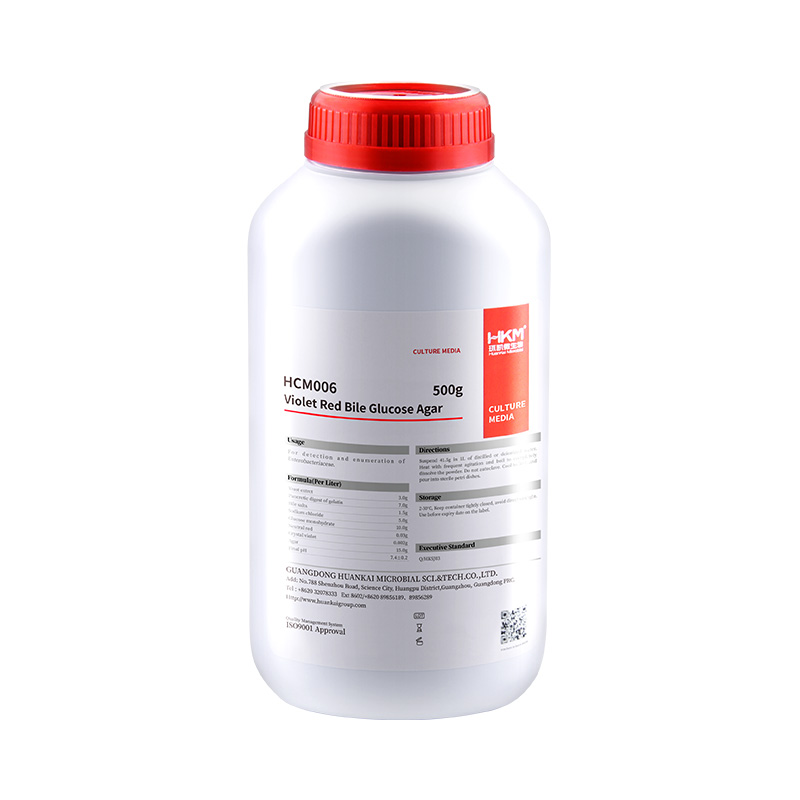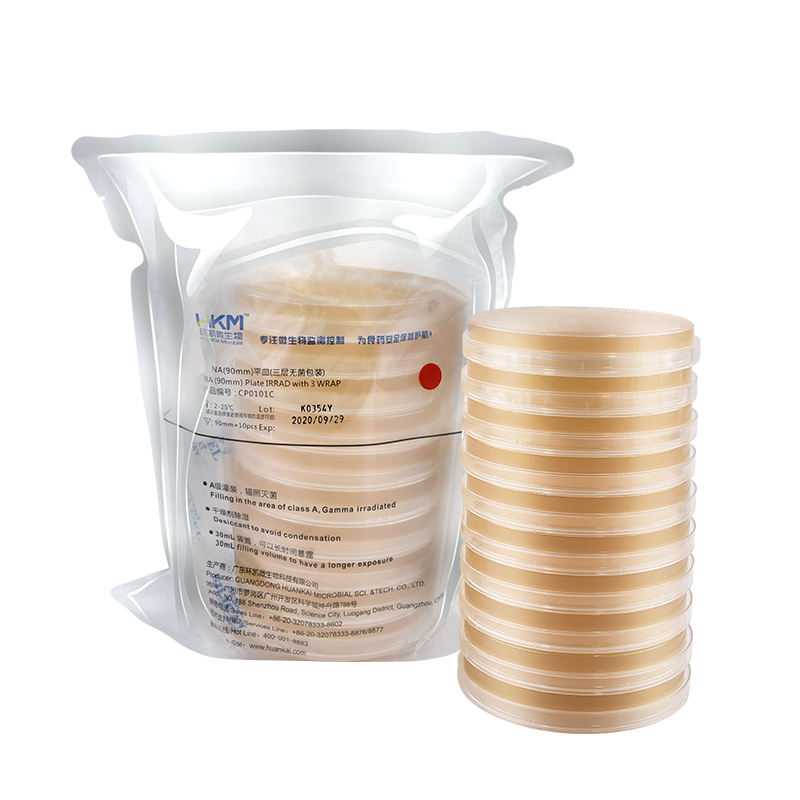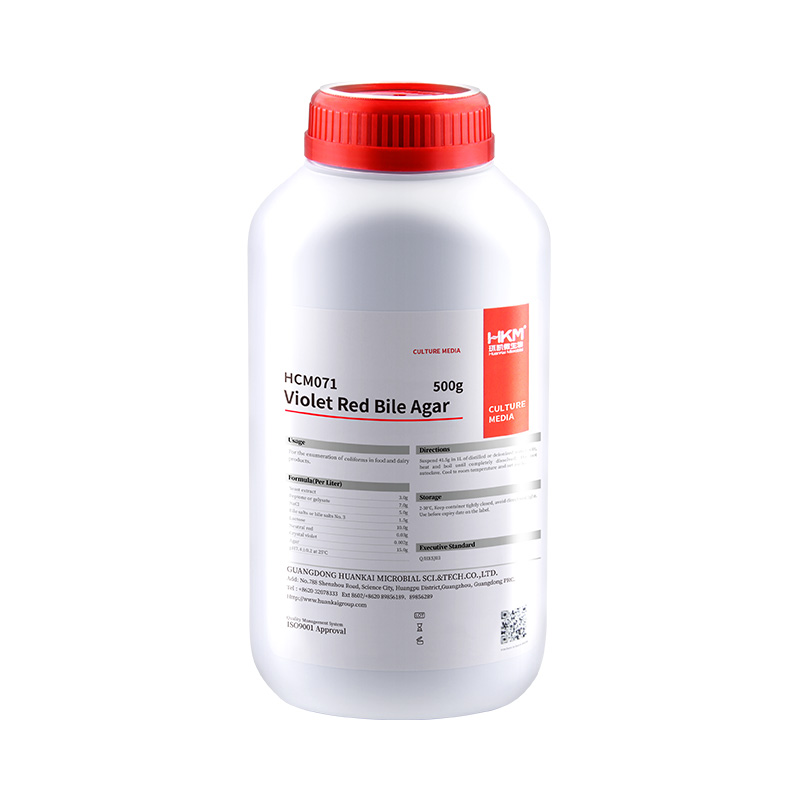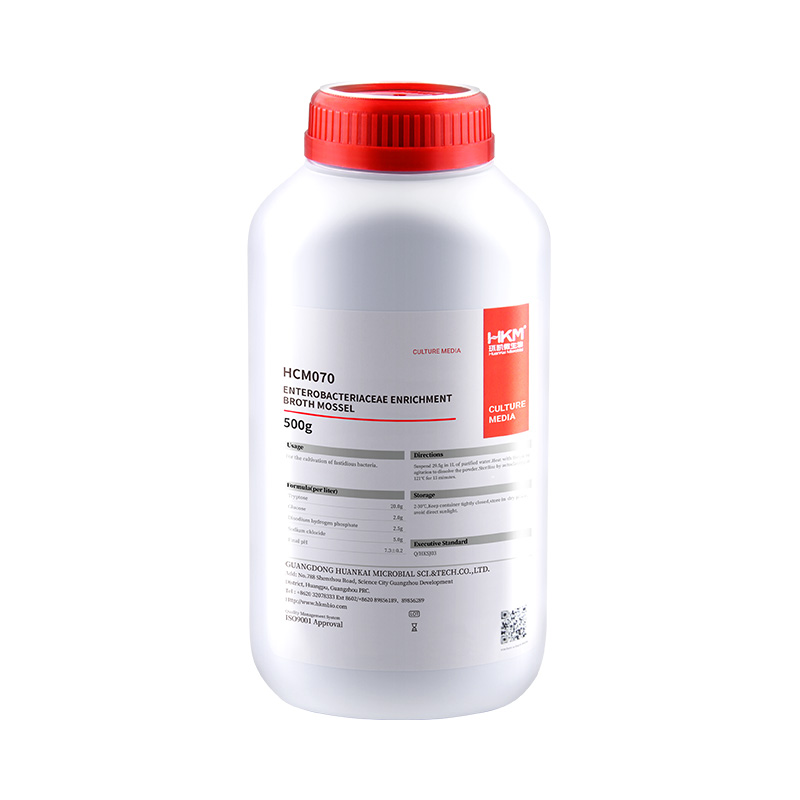HCM006 Violet Red Bile Glucose Agar
$26-37
For detection and enumeration of Enterobacteriaceae. Principle and Interpretation Gelatin peptone and yeast extract provide nitrogenous, carbonaceous compounds, long chain amino acids, vitami……
Introduction
For detection and enumeration of Enterobacteriaceae.
Principle and Interpretation
Gelatin peptone and yeast extract provide nitrogenous, carbonaceous compounds, long chain amino acids, vitamins and other nutrients essential for bacterial metabolism. This media is selective due to presence of the inhibitors; bile salts positive organisms especially Staphylococci. Neutral red indicator helps to detect glucose fermentation. Glucose fermenting and crystal violet. Crystal violet inhibits gram-strains produce red colonies with pink-red halos in the presence of neutral red. Sodium chloride maintains the osmotic equilibrium in the medium. The red colour is due to absorption of neutral red and a subsequent colour change of the dye when the pH of medium falls below 6.8.
Formulation
| Ingredients | /liter |
| Yeast extract | 3.0g |
| Pancreatic digest of gelatin | 7.0g |
| Bile salts | 1.5g |
| Sodium chloride | 5.0g |
| Glucose monohydrate | 10.0g |
| Neutral red | 0.03g |
| Crystal violet | 0.002g |
| Agar | 15.0g |
| pH7.4±0.2 at 25°C | |
Preparation
Suspend 41.5 g in 1 L of distilled or deionized water. Heat with frequent agitation and boil to completely dissolve the powder. Do not autoclave. Cool to 50°C and pour into sterile petri dishes.
Quality Control
Cultural characteristics observed after incubation at 35-37°C for 24-48 hours.
Page 1 / 2
| Quality control strains | Growth | Characteristics |
| Salmonella typhimurium ATCC14028 | Good, PR≥0.7 | Purplish red colony |
| Escherichia coli ATCC8739 | Good, PR≥0.7 | Purplish red colony |
| Pseudomonas aeruginosa ATCC27853 | – | Light red |
| Staphylococcus aureus ATCC29212 | Inhibited, G≤1 | – |
Storage and Shelf Life
2-30°C,Keep container tightly closed, avoid direct sunlight. Use before expiry date on the label.
Precautions
1. When weighing the dehydrated medium, please wear masks to avoid causing respiratory system discomfort 2. Keep container tightly closed after using to prevent clumping.
Waste Disposal
Microbiological contamination was disposed by autoclaving at 121°C for 30 minutes.
Revision
On June 14, 2024
References
ISO 21528-1:2017 ISO 21528-2:2017 USP.
EP.




